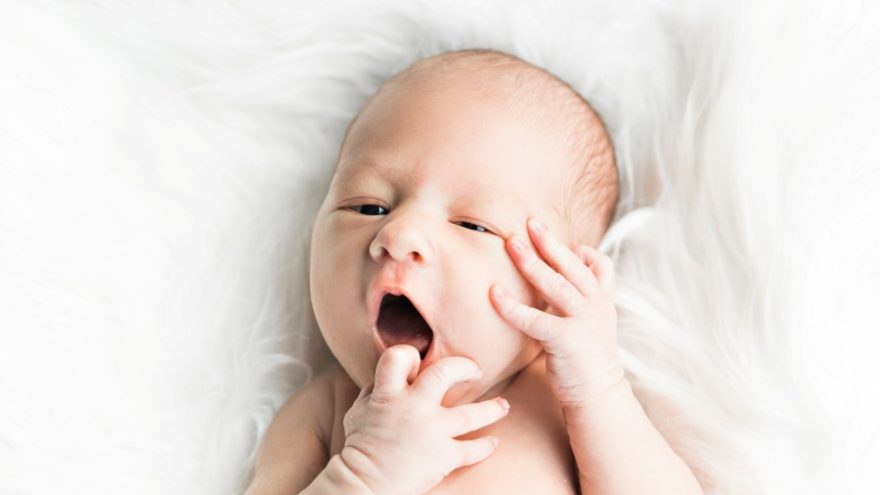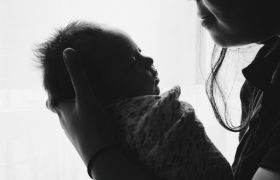Understanding and Reducing the Risks of SIDS

SIDS means “Sudden Infant Death Syndrome”, and this is the main risk that all parents of newborns have to worry about until around age 2. In the last thirty years, positioning of newborns has changed because there were so many SIDS deaths. Children used to be laid on their tummies years ago, however; health specialists have decided against it in later years. Children could choke too easy if they spit up and stop breathing. Babies are very delicate when they are first born and their bodily functions are kicking in. They are learning to suckle and there is a lot going on because they are not in the womb anymore. It’s all very easy for newborns to stop breathing so it’s important to check on them frequently and have a baby monitor so you can hear them breathing. If you can’t hear them, quickly go and check on them to make sure they are ok. The death of any child is terrible but think about parents that have lost a newborn when they waited forever to have their child. There are no words for comfort sometimes, and people will always wonder why? The best thing you can do is to understand and reduce the risks of SIDS.
Babies should sleep on their backs
Professionals are encouraging parents to always remember to place their babies on their back when they sleep, nap or are down for the night. Laying them on their backs is the safest way for babies to sleep that are under the age of 1 year old. When babies are used to sleeping on their backs and are then rolled over to their tummies, parents are seriously raising the risk for SIDS. Preemies especially should always be put on their backs and this includes right after they are born.
Nursery equipment
Parents should purchase a firm and flat sleep mattress and use a crib that is safety approved. Use a fitted sheet and don’t place any other blankets of soft pillows in the area babies are sleeping. Don’t put your baby to sleep on any soft surfaces, like a couch, waterbed, pillow, quilts, or blankets. These surfaces are highly dangerous for babies. In addition, don’t use a car seat, stroller, swing, infant carrier or any products that may look dangerous for newborns or babies to sleep. If you put your baby on a firm, flat surface such as a baby mattress in their crib, you are already reducing the risk of SIDS.
If a mother decides to breastfeed, she is giving her child a chance to have many extra health benefits. Babies that are breastfed, and are bottle fed breast milk, have a lower risk for SIDS. The longer mom breastfeeds her baby, the lower the chance becomes than mothers who choose not to breastfeed their babies.
If you decide to let your baby sleep with you make sure they have their own sleep area if you are feeding them when they are done. You can use a crib or bassinet, and keep your child close to you. Moms often fall asleep when they are feeding, make sure you are holding your baby away from your bosom so they can breathe and as soon as you wake up, put your baby back in their crib or bassinet. Babies can also suffocate very easily if they sleep with their parents and this is an unwanted situation for all parents, so please give your baby their own sleep space.
You can share your bedroom with your baby and keep them close to you in a separate bed, and on a separate surface only used for babies. This should be done for the first year, but 6 months is also a good time as well. Sharing a room with your baby also reduces the risk of SIDS. Never put your baby in a bed made for adults, a couch, or on a chair by themselves. Make sure you don’t place them alone with a pet or other siblings. Make sure your baby always has a separate sleep surface to stop the risk of SIDS. You are avoiding, strangulation, suffocation and the possibility of the baby getting trapped. When a baby comes to the bed for feeding with you, make sure all the soft blankets are removed far away from the area the baby is in. Again, put the baby back in their separate sleep area when you are finished feeding. It’s very easy for a mom to fall asleep during feedings so make sure baby is safe if you drift off for a few seconds because chairs and couches are not safe either.

Toys and accessories
Parents should not put soft animals, crib bumpers, or loose bedding under the baby or on top of them. In addition, none of this material should be anywhere near where baby sleeps in their crib. This also will reduce the risk of SIDS. Crib bumper pads used to be popular but research now has shown that these have caused strangulation, suffocation, and entrapment as well.
Another factor to prevent SIDS is to see your doctor regularly during your pregnancy, don’t smoke, drink, use pot, or prescription drugs if they are not yours. Don’t use any illegal street drugs either if you are pregnant. Once your child is born, smoke outside and in most states, it’s against the law to smoke in the car if a child is under the age of 12.
Use pacifiers
Pacifiers are also good to use for naps and nighttime sleeping to prevent the risk of SIDS. Make sure you have your routine set with breastfeeding and after about 4 weeks, try giving the baby a pacifier. Don’t attach it or tie the pacifier to anything because it might choke the baby. Some parents offer a pacifier sooner if they choose not to breastfeed. Never force the baby to use a pacifier, if they are interested, they will use it. Many babies have a strong suckling instinct and this works as a comfort to them. Pacifiers also reduce the risk for all babies whether they are breastfed or bottle-fed.
Tummy time
Give baby plenty of time on their tummies only when they are awake because it helps them to develop their neck muscles, shoulders and arm muscles. This also will help keep your child’s head rounded and not flat in areas. It’s important to look at your child as they grow and keep changing the direction they are laying so their heads don’t get too flat on one side. When parents follow these guidelines, they understand what causes SIDS and how to prevent it. Otherwise, enjoy your precious bundle and happy parenting!






